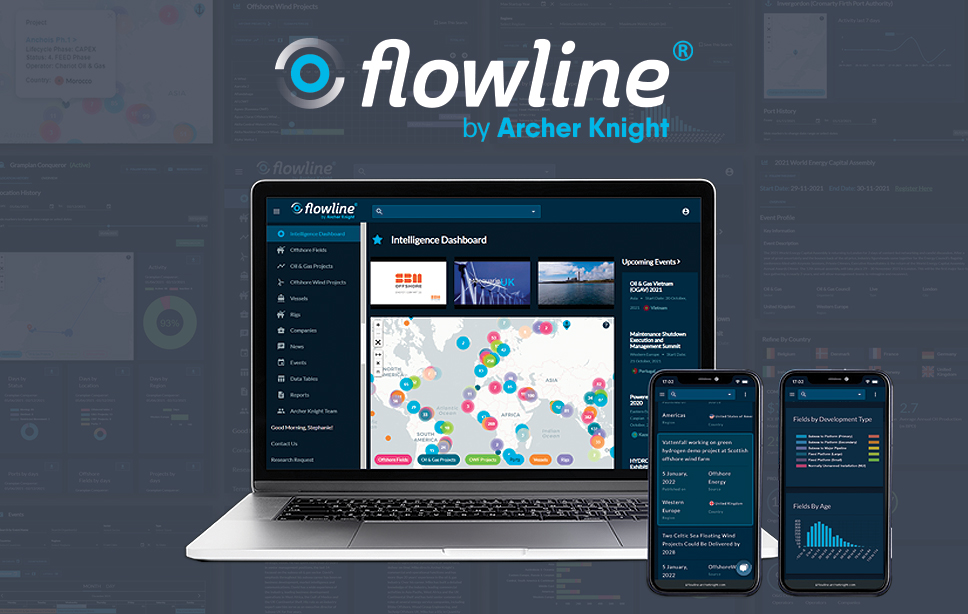3 min read
How to bounce back – relationships & resilience in the supply chain
![]() Archer Knight
:
June 16, 2020
Archer Knight
:
June 16, 2020

There’s no silver bullet, but the industry needs to learn lessons from previous adversity
As we continue to navigate through uncharted waters, both socially and economically, there’s no doubt the climate we’re all living through at the moment will have lasting repercussions for some time to come.
But as an industry, facing arguably the gravest crisis in a century, are we better placed than most to come through this adversity, given the cyclical nature of oil & gas?
For many, there was already an acceptance that the next downturn was inevitable because history tells us so. But what history made no allowance for was a global pandemic that has decimated the demand for oil, and thus forced the price down to unsustainable levels.
Learning lessons from previous downturns
So how has our industry coped in the past?
From personal experience, the last downturn of 2015/16 led to many resorting to issuing what amounted to little more than impersonal mailshots to everyone within their supply chain, ‘to whom it may concern’. The result of this was generally ineffective, as very few companies will volunteer cost reductions based on an impersonal and anonymous letter, certainly given they’re likely to be suffering just as badly, if not worse than their clients.
And so, collaboration became the buzzword that adorned every PowerPoint presentation and industry meeting, and in many cases, this worked. As simple and obvious as it may seem, engaging meaningfully with your supply chain resulted in efficiencies, streamlining and innovation, but most importantly it built relationships; relationships that will bear fruit when the next downturn arrives.
And so here we are, the next downturn.
Nobody could have ever predicted what 2020 was to bring in terms of COVID-19, an oil price crash yes, but not a global pandemic.
The speed and scale in which this crisis has developed is unprecedented and incomparable, certainly in most of our lifetimes. We have taken for granted the ease in which we have been able to move around the globe; a benefit of modern life, leading to a thriving oil industry and robust global supply chain, but also the primary reason the virus has been spread so quickly, and so widely.
Helping the supply chain bounce back
So how do we now kick start our industry? Cautiously seems to be the most obvious answer.
There is no silver bullet, but we must learn from the lessons of the past and engage meaningfully with all levels of the supply chain. The uncertainty that we all face will continue for some time yet, and it is imperative that we do things properly, as our behaviours now will dictate how the industry looks in the future. It is unreasonable to think that a blanket dictate of 10% to 20% reductions is acceptable, or even practical. Many companies are still recovering from the rate reduction ‘request’ of only a few years ago, and their margins have not recovered to anywhere near the levels that would be able to support such a rate decrease.
We need a healthy, robust, and competitive supply chain to thrive, a supply chain that’s been built up over decades and has an innumerable amount of experience within it. Experience we risk losing unless we all play our part.
Of course, the pendulum swings both ways. It is not uncommon for suppliers to become more cautious in these uncertain times and reduce credit limits, or indeed insist on pro forma payments, making it difficult for their clients to continue trading with them, as prepayment is not necessarily a facility available to some organisations.
There are many ways to contract effectively, and I would strongly urge suppliers to carry out some due diligence before making decisions whereby trading with them becomes so onerous, they lose custom. Consider how your clients have acted in the past. Have they paid on time, or within an acceptable time frame? Have they maintained regular dialogue and been open and transparent about their position? This all points back to my earlier point about relationships.
Protecting the supply chain for the future
I have long been a believer that there is a big difference between cost and price, and the cost of poor quality will be significantly more detrimental than the perception of a cheap price, indeed, many people I have worked with will have heard me say, ‘buy cheap, buy twice’.
It is evident that we must continue to balance the short-term changing business landscape with a need to protect our supply chain for the future and ensure the sustainability of our industry for many years to come.
We will come through this, albeit battered and bruised, and without doubt there will be casualties along the way, but we are a resilient bunch, and have demonstrated in the past our ability to galvanise as an industry. Together we can emerge from this crisis smarter, leaner, more adaptable, and better prepared for the next challenge.
John Black is a senior supply chain and commercial specialist with more than 20 years' experience. Contact John here.
For more information on Archer Knight services click here.

1 min read
Announcing Flowline - Archer Knight's new subsea market intelligence software platform
Flowline – your own ‘digital employee’ We’re delighted to announce the launch of Flowline, Archer Knight’s new digital platform; an innovation to...

4 min read
How to manage energy transition in oil & gas
Done right, the move towards carbon neutral offers companies new and exciting opportunities. The industry is embracing the energy transition...

2 min read
Experts give their views on future of floating energy
Inaugural event helps industry leaders understand the challenges ahead Technological innovation. Learning from experience. Collaboration....



